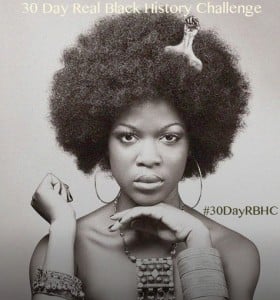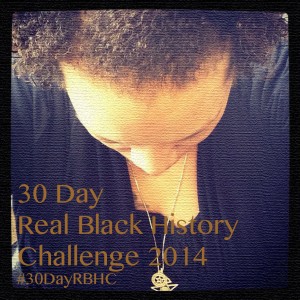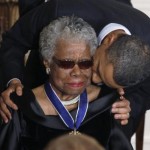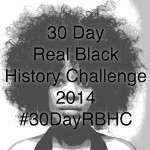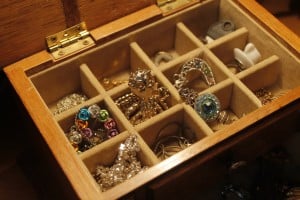The words of my mother, and many other Black mothers out there, just trying to press their little girls hair. The smell of smoking hair, the heat on the back of my neck, and the lingering memories of shadow burns on the tops of my ears are all a part of my memories of being a little girl made beautiful by my mother. My mother was skilled at her job, she could press that hair better than most, and I did not even get scared until she was behind my ears or in the kitchen (the back of the neck where the naps are).
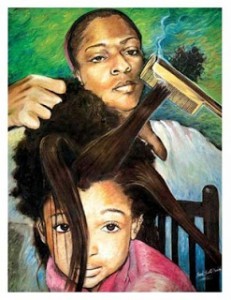
She did not burn me much, and her expertise was getting so close to the scalp that you couldn’t even see the wave of the virgin hairs coming in from the skin on my head. She was a master. She taught me how to take care of my hair when I got older, perming and pressing the coils out of my nappy old hair. Nappy hair was a reflection of parents that didn’t care within a society that assumed we were less human.
I was conditioned to sit in that chair, stiff as a doll, while a metal comb was racked across my scalp so that my savage curls could be transformed into straight, flowing hair. A reminder that I was not beautiful as I was; only beautiful when I was able to look like something I was not. And when it was time to wash out the whiteness that came at the end of a smoking metal comb, I would dread the hours of combing through my unruly blackness, blow drying, and hot combing it again. A process that would take hours, but would begin to signify my conditioned perception of beauty until I became 36 years old and began to really question who I was underneath the perm, endless amount of hours, and burned flesh.
I no longer cared if I had dirty dishes in my kitchen (meaning naps on my neck) and instead wanted to see what the full dirty house would look like. What would it mean to be beautiful while being 100% me?
So much of the culture of being a Black woman in today’s society is enmeshed with the nuances of our past, passed down to our futures. My mother taught me to be the best I could be, raising me as an extension of the oppression she had endured herself. Our parents teach us what they know, and as a Black woman from the south, her knowledge was cloaked in the history of racism disguised as hope. If you look like this, you will have the chance to be that. She wanted the best for me, and she tried to show me how to get that. Today I am still working towards that same dream, I just am no longer doing it on the other end of fear and a hot comb. Today I am learning through my incredible tangle of coils how to connect with the beautiful me that was always there.
That little girl is getting a new lesson today to heal the internalized hate and racism of a nation that disregards her naturalista qualities as ugly. The little girl of my past, sitting in the kitchen chair with her head down, is now looking into the mirror of her ancestors, seeing value in the elements of her nappiness.
“You are beautiful girl…… you look like everything right about our people.”
The words of my mother, and many other Black mothers out there, who only want to instill a sense of self worth that brings about an internal knowing of power. And I imagine that my mother thought I was beautiful. I imagine she felt that internal conflict that making me beautiful was making me other than who I was, and yet she saw me as a goddess in the making. I imagine that my mother wrestled with the concepts of beauty that she was conditioned with, and that she was conflicted with her own identity of womanhood as she looked in the mirror at her pressed and processed hair. I imagine that she was asking herself the same questions that I began to ask myself before becoming natural.
My mother did go natural when I was in my adulthood. She found her way out of the trap of white supremacists inspired concepts of “white is right” beauty, and located the road to herself. And once again she showed me how to be beautiful.
“Girl, you got that good hair!”
A statement that many Black girls aspire to hear. That our curls are not too tight, that our kink is not too unruly, that our “shrinkage” is not to shrunken. Truth be told, the culture of Black people in America has always been one of survival, and our exterior has always had to be inline with the cultural norm that was acceptable to the overculture… the white culture. Yet culture is a living, breathing thing that bends and changes to the rebirth of generations. And Black women are learning that our culture does not have to be about hair grease, hot combs, chemicals and fear. Our culture can transform with our revolution of the self, and become about naps, braidouts, and afros. We are a proud bunch, and we will continue to create our culture from the imprints of our past, to the visions of our future.
“Girl, your naturalista hair is bangin! And your kinks and coils are beautiful!”
“Thank you girl, and so are yours”
“It might seem crazy what I’m about to say
Love is here, haters take a break
I know you’ve seen these curls all in my face
I shake my hair in the air like I don’t care baby by the way…
1st chorus
Because I’m nappy
Clap along if you know that a comb can’t mess with you
Cuz I’m nappy
Clap along if you know that Africa’s in ya roots
Cuz im nappy
Clap along if you know that nappiness is the truth
Cuz Im Nappy
Clap along if you know that nappy’s what youre born to do “

